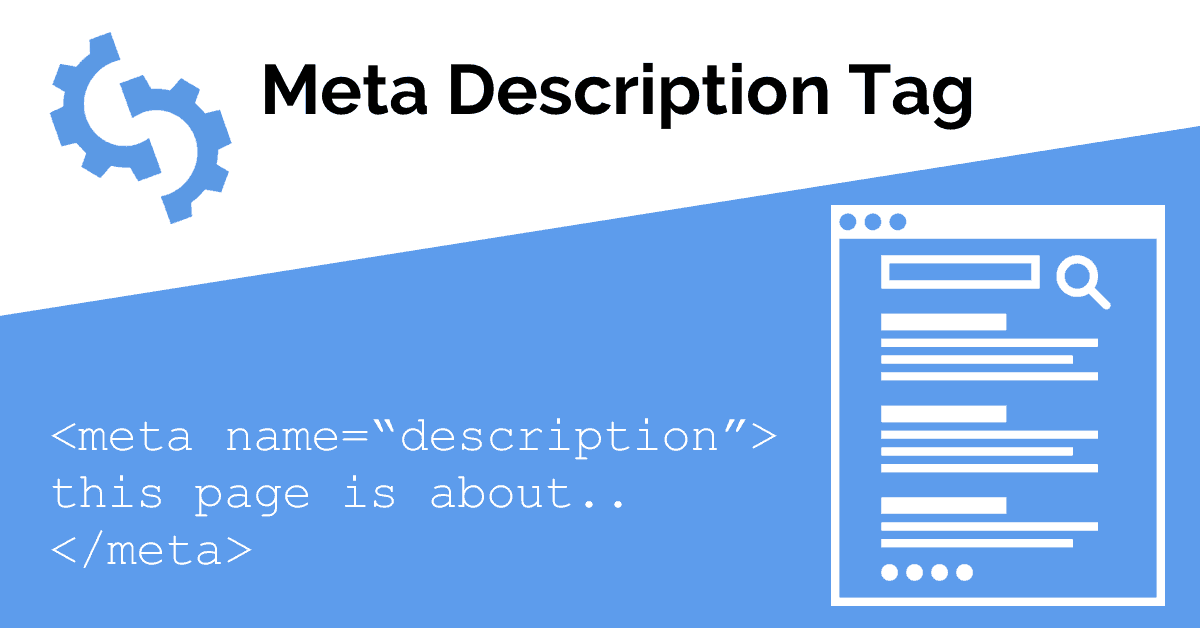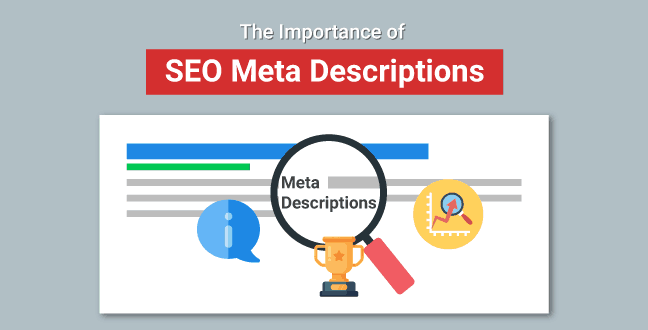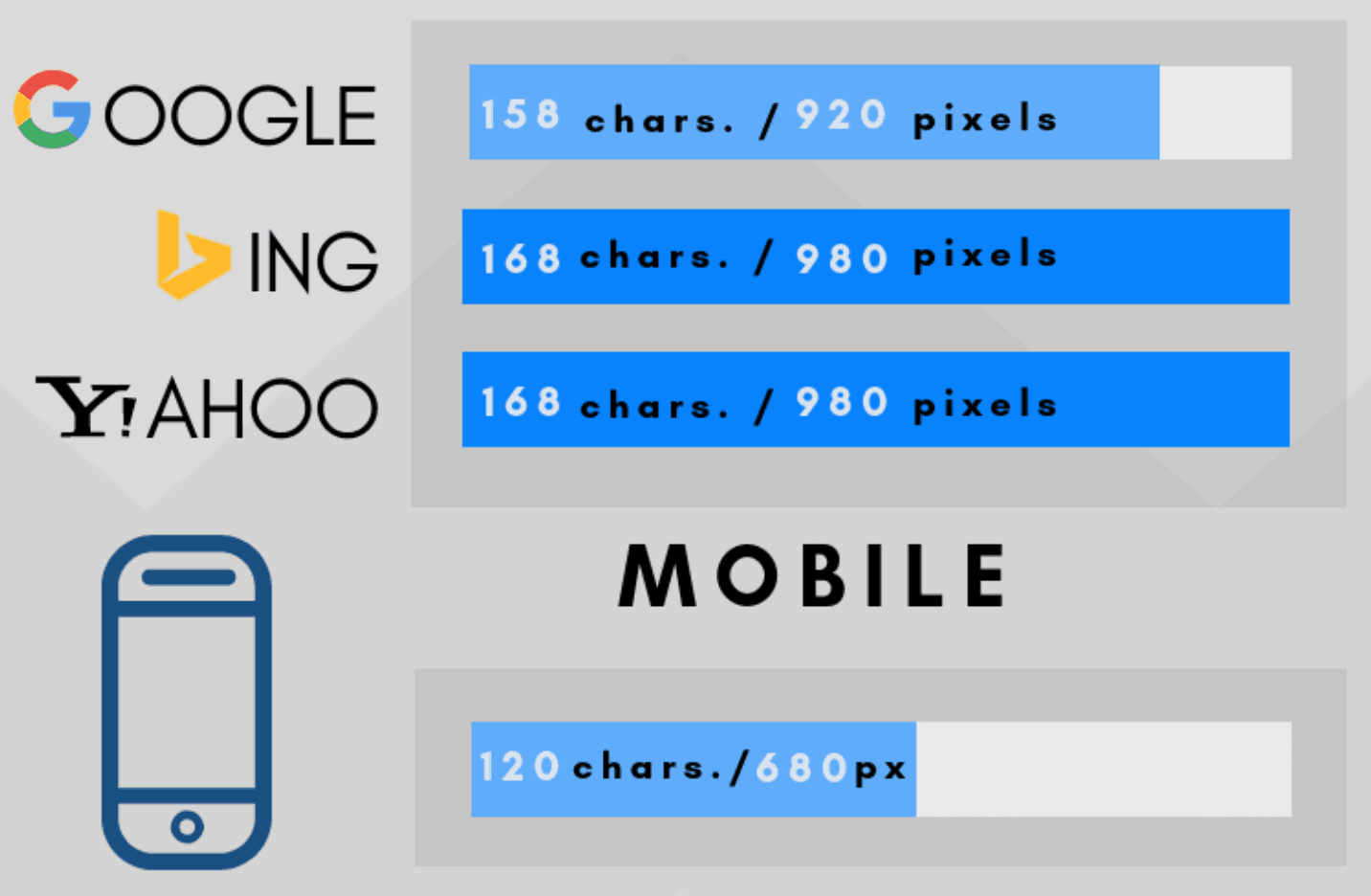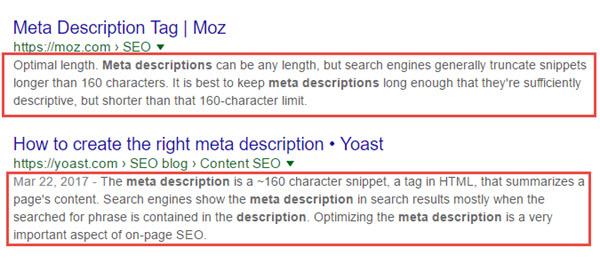What is a Meta Description?
A meta description is a component within your meta tags that helps to describe your webpage. Usually a short snippet of text, a meta description may appear in the search engine results just under your page’s headline. Sometimes, however search engines will pull tet directly from the main body copy of your page and use that as the site description on the search engine results page (SERP).
The meta description is easily found on any webpage by simply right-clicking on the page in question and selecting “view source” or “view page source.” This will lead you to the page’s code, where you’ll be able to see a meta description tag that will look something like this:

or this:

In short, a meta description is important for a few reasons. For one, it serves as the snippet of text on the SERP when an Internet user performs a search query that your page or site ranks for. Ideally, your meta description should give search engine users a quick yet informative description of what they’ll find if they decide to click through to your site.

How Are Meta Description Important for SEO?
When it comes to search engine optimization (SEO), meta description tags play a significant role. They can greatly impact SEO efforts because of one important value: they act as “organic ad text.”
This means that when your ad, site, or webpage ranks for a keyword, Google and other search engines will show the meta description as a summary of the page. In other words, your meta description is as important as ad text, so you should be as intentional about writing it as you would all other content.
When you have a meta description that is both compelling and concise, it raises the click-through rate of your organic search results dramatically, which results in more visibility and user engagement. Even if your rank stays the same on the average SERP, the right meta description can mean more traffic for you, which can lead to more business, customers, and growth.

How Long Should a Meta Description Be?
Since a meta description is so important, how much work should go into it? We already know that a meta description is nothing more than a short snippet of text that briefly describes your webpage, but how short is “short”?
Google has recently expanded the standard length for a typical meta description. Before, meta descriptions were recommended to be up to 160 characters in length. In 2017, this requirement changed and Google now allows up to 275 characters on each SERP.
With this in mind, you should still make a point to optimize your meta description tags to 155-165 characters long or less. Keyword research is an important step to ensure that your meta description captures your webpage accurately.

How Do You Write a Good Meta Description?
Writing a short paragraph should seem easy, but a lot of thought, planning, and focus must go into making a meta description not just good, but able to increase your click-through rate and conversions.
These little snippets of information give you an opportunity to effectively advertise your content to searchers, giving searchers a chance to decide whether or not your content is relevant to their search query.
So, how do you write a good meta description? Make sure you do the following:
Make Your Meta Description Intelligent
This means that your paragraph reads naturally with active words that aren’t spammy or flashy. This little description is all about gaining interest and trust because you want searchers to feel like your webpage has what they’re looking for and what they need.
Employ Relevant Keywords
This means that the words you choose to include in your meta description are not random but carefully researched and part of an existing keyword strategy. Your webpage is about a specific topic, so make sure your keywords are relevant to the page it describes as well as unique from other pages.
Be Clear About Benefits and Urgency
If your webpage is offering a service, product, promotion, or another type of offer, make this clear in the meta description. Some things are time-sensitive and you don’t want potential customers to miss out on a good deal. Give searchers a reason to click-through by showing exactly what your page is offering as quickly as you can. This makes things more streamlined and should increase traffic over time.
Appeal to Emotion
In digital marketing, humanity can get a little lost. You may forget that the numbers of visitors, clicks, and purchases in your typical site traffic are also living, breathing humans with thoughts and feelings.
Appeal to your searcher’s emotions to not only grab their attention but to also connect with them on a deeper level. When searchers feel a kinship with a company, they’re more likely to trust it and give it business.
Keep these quick tips in mind to write a better meta description no matter what webpage you’re trying to attract traffic to.

Meta descriptions are important, but does your webpage measure up to what’s being described? Let Directive check out your website and identify areas where you’re doing well and where you could use a boost. Get a free proposal from us today to learn more about how we can help!